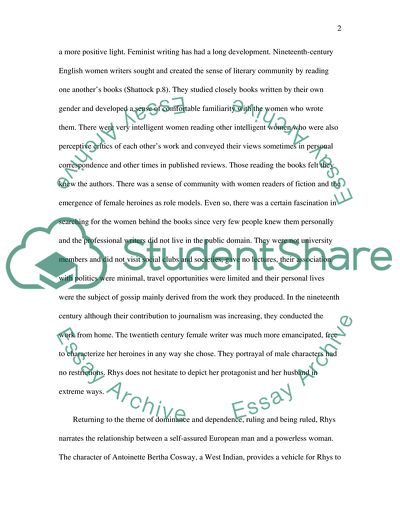Cite this document
(Jean Rhys's Wide Sargasso Sea Literature review, n.d.)
Jean Rhys's Wide Sargasso Sea Literature review. Retrieved from https://studentshare.org/literature/1704329-literature
Jean Rhys's Wide Sargasso Sea Literature review. Retrieved from https://studentshare.org/literature/1704329-literature
(Jean Rhys'S Wide Sargasso Sea Literature Review)
Jean Rhys'S Wide Sargasso Sea Literature Review. https://studentshare.org/literature/1704329-literature.
Jean Rhys'S Wide Sargasso Sea Literature Review. https://studentshare.org/literature/1704329-literature.
“Jean Rhys'S Wide Sargasso Sea Literature Review”, n.d. https://studentshare.org/literature/1704329-literature.


